DVLA Strategic Plan 2021 to 2024
Updated 18 February 2022
1. Chief Executive’s foreword

The coronavirus (COVID-19) pandemic reinforced the importance of the DVLA’s work to the nation, especially in underpinning the transportation of critical goods around the country. It also highlighted that even as a digital organisation, our incredible staff are the beating heart of DVLA who enabled us to continue to provide essential services throughout those months, both online and in person. In 2019/20 we celebrated 50 years since the foundation stone was laid at our Swansea site. Motoring has changed significantly over the intervening decades with huge increases in the number of people and vehicles on our roads.
We have always adapted to this changing landscape to meet our core responsibility to ensure that the right drivers and vehicles are on the roads and to collect vehicle excise duty (now £7 billion each year). This three-year strategy sets out how we will continue to adapt to meet those responsibilities in the future in a rapidly changing world.
The impact of the pandemic on our operations has of course influenced this three-year strategy, when considering the services we offer and the way we deal with our customers. We will continue to accelerate the expansion and sophistication of our digital services, including working to secure the legislative changes that will be needed to move to providing digital driving licences.
Our registers of 49 million driving licence holders and 40 million vehicle keepers remain at the core of our work and we will focus on using the data we hold to improve the way we work and the services we offer. We have a relationship with drivers throughout their entire driving life, which for most spans decades and we want to make every customer interaction with us as simple and seamless as possible, as for most it already is.
We are committed to continuously improving our services for all of our customers throughout the UK and that is a key focus for this strategy.
This will entail improvements to both technology and data that will in turn bring changes both for customers and our staff. Our aim is to provide excellent customer service and good value for taxpayers, and a sustainable future for DVLA here in Swansea. This strategy will help us deliver on those ambitions.
Julie Lennard DVLA Chief Executive
2. Introduction
Our aim is to be the hub for motoring services. The skills and capability of our staff and scale of our operation means we are well placed to deliver not just for the Department for Transport but across government as well. Our aim remains to provide reliable, user-friendly services which are easy to use and also provide value for money for taxpayers. Our systems are designed to cater for large volumes and currently hold records of more than 49 million driving licence holders and 40 million vehicles.
We process millions of transactions every single month as motorists pass driving tests, surrender licences, are given or relinquish penalty points by the courts, need tachograph cards or develop medical conditions that may impact their ability to drive. Vehicle keepers and companies buy or sell cars, register for trade plates, import, export or scrap vehicles, change their names or address when they move offices or house or buy and use personalised number plates. The wide range of services we offer means our work touches on almost every household and many businesses in the UK.
In recent years we have been undergoing a radical change to move from a largely paper-based organisation to an overwhelmingly digital one. To fully deliver on this for both customers and staff is a long-term commitment and our approach while on this journey will remain to deliver high volume, digital services which allow our customers more choice in how and when they deal with us. The more that people switch to using our digital services, the lower our carbon footprint will be, as we will further reduce the amount of paper we print and deliver across the UK. We will work with businesses, including the motor industry and others, to further develop services in ways that help to meet their needs.
Our track record and our achievements to date will be the foundation for the next three years from April 2021 to March 2024 and beyond. We will position ourselves for a changing future and invest in new and improved services which will make things simpler and better for motorists, businesses and wider government, as well as our staff. Changes to demographics mean that we are seeing increases in the number of applications from drivers with medical conditions.
These are increasingly complex and will require step changes in the way we deal with them. The scale and pace of change is growing rapidly and technology is bringing real benefits in terms of greater automation and the ability to use cleaner fuels. Reducing the impact of carbon on the environment will be a key focus, as will improving our use of data to in turn improve and further personalise our services. We will ensure we are flexible in terms of our services as well as in our approach, so that we can continue to deliver excellent customer service and value for money for the taxpayer.
2.1 DVLA by numbers
Every year, we:
- respond to over 600,000 emails and webchats
- issue more than 10 million driving licences
- issue nearly 13 million registration certificates
- answer more than 18 million phone calls
- deal with over 1 billion online enquiries
- collect £7 billion in vehicle excise duty
3. Strategic aims
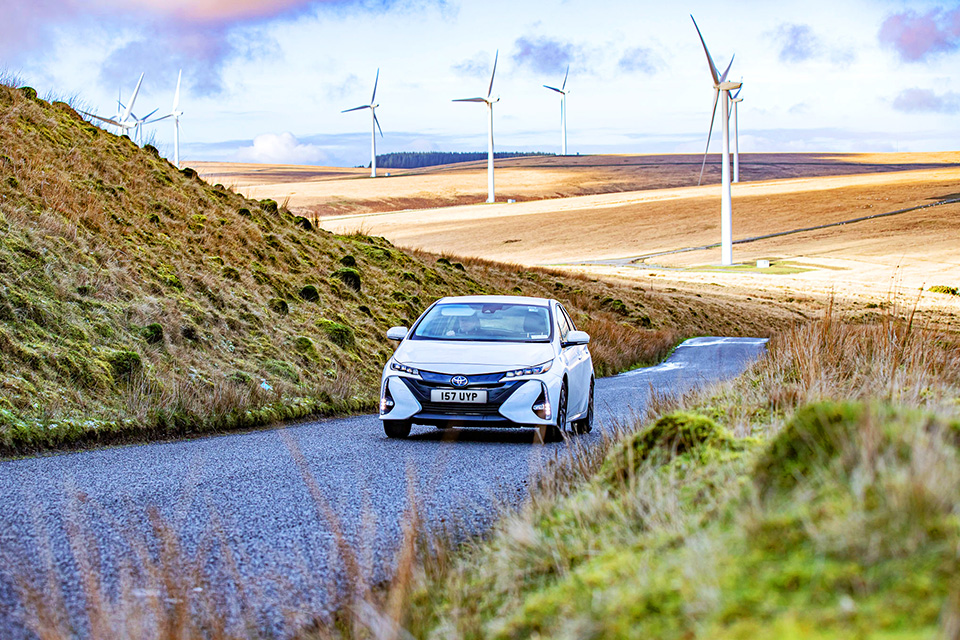
Motoring technology is changing fast and as the motoring hub, we aim to be at the forefront as new services are needed to support government priorities and technological advancements, as the UK forges new relationships following our exit from the European Union.
Our end-to-end services will be designed around helping to meet customer needs and we will ensure our staff have the skills to deliver on these commitments.
-
We will be customer-centric in the way we deliver our services. We will develop our services around helping to meet our customers’ needs, whether they are individuals, businesses or other public sector organisations. We will work towards further reducing vehicle excise duty evasion by making it as simple as possible for motorists to comply with the law.
-
We will consolidate our position as a dynamic, digital organisation which provides high quality, innovative and secure-by-design services. Over the next three years we will prioritise the redevelopment of our drivers’ services to ensure that they are even more flexible and responsive and fit for a changing future. We will introduce a digital driving licence for provisional drivers and also start to build a customer account facility. This will ultimately give our customers personalised, easy and secure access to a range of services and allow them more choice in how they transact with us. Our services will be secure, scalable and resilient and we will continue to explore and expand the use of emerging technologies.
-
We will be data driven to make the best use of the information we hold. We will always protect our customers’ personal data. We want our data to be standardised and linkable, and we will focus on using data to improve our services for the benefit of our customers. We will be transparent in our approach to data use. We want customers and businesses to find it easier to access information about themselves, along with an explanation of how it is used. We will establish a data science function to enable us to improve the services we offer and the way we work. We will leverage this to support advances in technology, combating fraud, the drive towards decarbonisation and the wider environmental agenda.
-
We will continue to be a great place to work. We will invest in our people across DVLA to provide them with the range of skills and knowledge they will need to adapt to the changing work landscape, particularly as we utilise greater automation. We will also build on the work we have already done to increase our in-house digital and data capability and skills. We will develop initiatives with local education providers to ensure we help build the local digital skills economy and in doing so the current and next generation of DVLA employees. We will develop the skills of our leaders through continuing the rollout of our development programme, so we can set a compelling vision for the future and lead our people through the changes ahead. We will maintain our emphasis on creating a sustainable working environment and build flexibility for the future. We want to be able to take advantage of the opportunities that will arise utilising our full capability and capacity here in Swansea. By retaining a highly motivated, productive and flexible workforce, we will be able to deal with the complexities of a changing and more technology-driven future.
3.1 Customer-centric

Our goal is to ensure that we get drivers and vehicles on the road as quickly and as safely as possible.
Our digital services remained fully available during the COVID-19 pandemic and offered customers a seamless service. However, there were challenges for those customers who are unable or reluctant to transact with us online and we will work to make the customer journey as simple as we can across even more of our services.
We understand that our customers must deal with us so that they can comply with the law, whether they are individuals, businesses or other organisations. However, we will have the same mindset as if our customers were able to ‘vote with their feet’ and go elsewhere. Providing excellent customer service is central to our success and at the core of everything we do.
We will benchmark ourselves against similar organisations to ensure we remain best in class and will seek independent accreditation where relevant. We aim to be in the top five public sector organisations for customer service and to retain the Customer Service Excellence Standard, as well as the Customer Contact Association Global Standard.
We aim to make transacting with us as seamless as possible. We will design, build and deploy multi-channel services that are driven by customer needs. We will continue to utilise our user experience laboratory to ensure that customer needs are built into the design of our services from the earliest stages.
We want to deliver the services our customers want in a way that they want them, whether they are individual motorists, corporate bodies or other public sector organisations. We will continue to work with relevant organisations, including our charities’ forum and motor industry bodies, to ensure we take the wider needs of our customers into account.
We will modernise the channels that customers can use to communicate with us, particularly via our multi-channel contact centre, utilising webchats and chatbots more. We will continuously improve our services and allow customers more choice in how they transact with us. With many millions of transactions each year, we realise that there will be occasions when things go wrong. When this happens, we will aim to treat the customer more as an individual and less as an anonymous ‘case’ to be solved. We will work to put mistakes right and to also learn lessons to help us continuously improve.
Keeping the level of vehicle excise duty evasion low remains one of our key priorities. With 98.4% compliance, we will seek to continue that upward trend in compliance even further, recognising the additional challenges from the economic uncertainty stemming from the impact of the pandemic. We will continue to review our activities and processes to make it as easy as possible for our customers to comply with the law while taking effective action against those who do not.
3.2 Dynamic, digital organisation
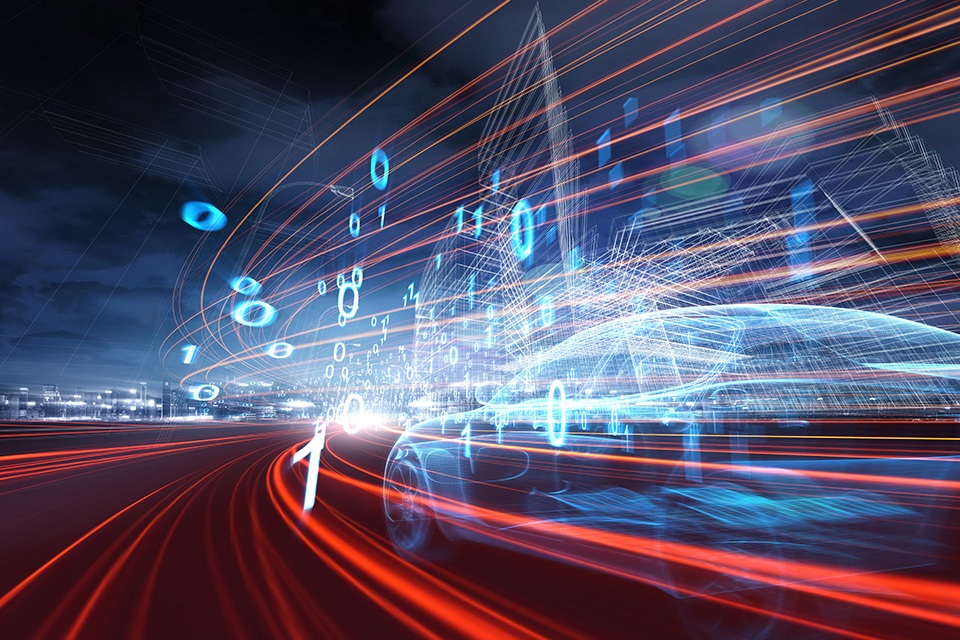
We will continue to accelerate the redesign and re-platforming of our services, building on the foundations of what we have already delivered and being ambitious about the future. The foundational work already completed and the skills and capability of our staff allowed the rapid development of new online services in response to the COVID-19 pandemic and we intend to continue that momentum going forward.
We want our services to be easy to use, secure by design, scalable and resilient. We are well established on this road with our new ‘register a vehicle’ for manufacturers and dealers service, as well as our trailer registration and online tachographs services. These were all key steps in changing how we build and develop new technical landscape services, utilising reusable components so that we can respond more quickly and effectively to changing user needs.
This is a long-term strategy that will take time to deliver in full and our priority in this strategic plan will be to redevelop our drivers’ services. This will include improving the digital process of applying for a provisional driving licence as well as other driving licence applications and looking to introduce a digital provisional driving licence. We will continue to develop digital services thinking of the end to end customer experience and making it as easy as possible to transact with us.
Our customer focus will allow people to utilise different ways of proving their identity, as well as introducing new and innovative ways of accessing our services, including on mobile devices.
We will continue to evolve our services using new digital and technology architecture as we move away from legacy systems and continue to embrace a cloud first, API approach. This will allow us to deliver a set of services which are more affordable, flexible and responsive to the changes we will need for the future.
Historically, records of drivers and vehicles have been separate. We know that customers want to see their information in one place, whether it is their own driver record or the record of their vehicle. We have launched customer accounts within our trailer registration service and we will build on this and develop a customer account across our drivers and vehicles services.
This will allow greater personalisation of our services and provide customers easy and secure access to them. We will ensure our authentication processes will be easy and secure for our customers to use. This will ultimately allow customers to take greater control of the way they transact with us.
Our intention is to build services that are digital by desire – with digital services that are so good that people will choose to use them, making their transactions faster, simpler and with a lower carbon footprint. However, we will not be an exclusively digital organisation and will ensure we continue to operate as a multi-channel organisation, so that those who cannot go online can still transact with us in other ways.
3.3 Data driven
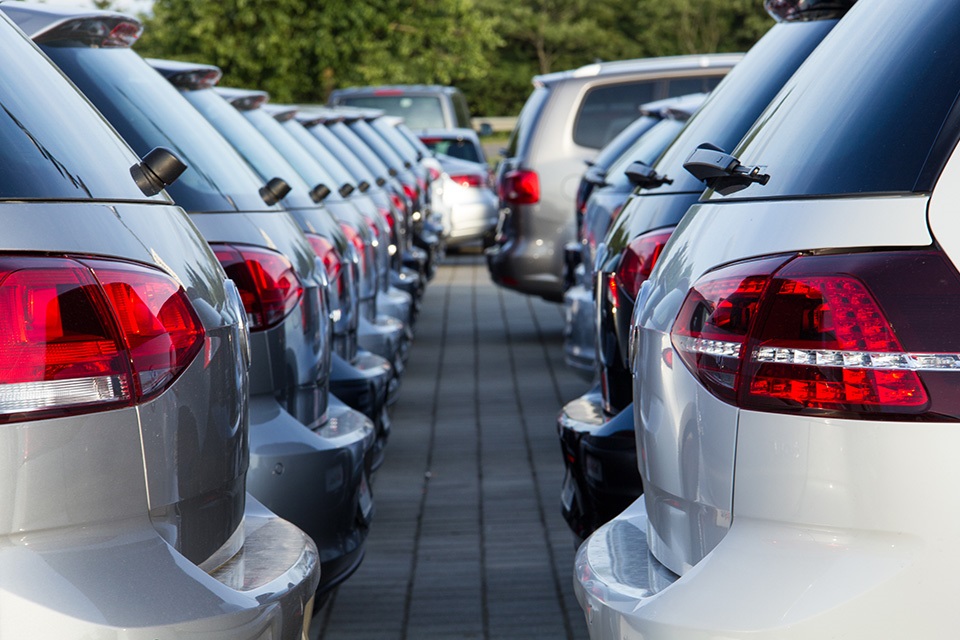
We are in a unique position as we hold data on every driver throughout their full driving life, as well as every vehicle. We operate at scale and so by necessity, we hold a large amount of data.
The importance of the data we hold was highlighted during the pandemic as it was critical in supporting HMRC and DWP in their responses to the emergency. The need for wider cross-government data sharing where it is legal and appropriate to do so will be critical over the three-year period of this strategy.
Our priority is and will always remain to protect the data we hold. Our services will be secure by design and our culture will ensure that our responsibility to protect data, especially personal data, is at the core of the organisation.
We want data to be a standardised format and linkable. The modern, flexible IT environment we are building for the future will allow us to be ready to capture data that will be generated by new technologies, for example in relation to connected and autonomous vehicles. It will enable us to review what data needs to be captured and recorded on vehicle registration certificates as different types of vehicles (like autonomous or electric vehicles) become more widely available.
Green issues are a priority. We will help the UK to lead in innovation around decarbonisation, focusing on how people use our roads in order to tackle climate change and improve air quality. We expect to see significant changes in the types of vehicles that motorists will be choosing to drive. Our expertise in managing information will allow us to react quickly to requirements to collect new data and to be able to use that data, where appropriate.
We will take on managing the clean air zones service that government will provide to local authorities, once it has been established by the Joint Air Quality Unit. We will continue to use our data to underpin the changes needed to improve air quality. Electric vehicles are a key part of the low-carbon economy and their popularity is growing. We will continue to work with the Office for Low Emission Vehicles to help shape and run relevant services on their behalf.
We will establish a data science function to support decision making and allow us to plan for the future. We will better use the data we hold to provide benefits for our customers and taxpayers. Our priorities for our data science function will be to utilise the data we hold to prevent fraudulent driver or vehicle transactions and to leverage wider benefits.
We will always protect the integrity and confidentiality of the data we hold but we will also share it where there is a need to and the law allows us to do so. Sharing data in a controlled way can support service improvements and can bring benefits to individuals, the wider public and government. While the reasons we will share personal data are limited, we can share nonpersonal, vehicle data more widely. We are, and will, remain transparent about how we share data.
We will continue to utilise the data we hold to enable us to develop high quality services with other parts of government where appropriate. For example, we will work with Her Majesty’s Courts and Tribunal Service to deliver changes that will streamline the way we work together and how we securely transmit data, providing significant benefits, including cost savings, for both organisations.
3.4 A great place to work

As one of the largest employers in South Wales, we recognise we play a major role in the local economy. We are proud to be based in Swansea and to invest in the skills of our local community.
We have shown that we are flexible in how and where we work and that we can respond quickly to rapidly changing circumstances. Given the nature of the work we do and the data we hold, we will always need people on-site to process certain applications and maintain certain services. However, the pandemic has shown that large numbers of people can effectively work remotely, offering more flexibility around how we use our estate in the future. We will build on how we responded to the pandemic, including how we use our business continuity function to manage both new and ongoing risks.
We want DVLA to be a great and inclusive place to work and to offer good-quality, rewarding jobs for the talented people who want to work here. We will build on the progress we have made in creating a diverse workforce which is representative of our external environment, including increasing women in IT roles and driving the social mobility agenda. A highly motivated, committed and flexible workforce will ensure we are productive and better equipped to face the challenges ahead.
Every single person who works at DVLA has a key role to play in helping us to achieve our aims in this strategy, no matter what their role. As we change our IT environment to be more flexible and scalable, the jobs we offer are likely to change. We want our staff to be multi-skilled, to ensure our people are as flexible as the technology they will be using.
We will continue to invest in IT and digital capability. We will capitalise on our Centre of Digital Excellence which aims to recruit and develop talent, including in software development, cyber security and cloud services. We want Swansea to be the best place in Wales to start or develop a career in digital, data and technology. We will continue to work closely with local schools, colleges, universities and other organisations to help build the local digital skills economy and the current and next generation of DVLA employees.
We will maintain our commitment to staff health and well-being and will also continue to invest in the skills needed for our staff across all professions as their roles develop. We will upskill staff to take on new challenges and ensure they have the tools they need, and will engage and consult with staff as demands on us change. As part of our aim to be the motoring hub for government, we will always look to maximise the capacity and capability we already have, through developing our own services or through working with others.
We will invest in our site in Swansea and make decarbonisation a core part of our estates planning. This will include investigating opportunities to deliver sustainable energy generation on the DVLA estate. We will seek to increase the number of our own ultra-low emissions vehicles and will more than double the number of electric vehicles charging points across our sites that are available to staff and visitors. We will continue to make the most efficient use of our estate and build on our progress in creating a modern, flexible, fit-for-purpose working environment aligned to government’s smarter working principles.
We also recognise the role we play in our local community and the importance of having a workforce that is representative of that community. We will continue to support volunteering opportunities (for example, STEM ambassadors in code clubs in schools) as well as our Ambassador programme to reach underrepresented groups to increase the diversity of our workforce and ensure we are inclusive in our approach. We will continue to have a charity of choice chosen by DVLA staff on an annual basis. Since this scheme has been running, DVLA staff have raised more £300,000 for charities.
4. Our approach
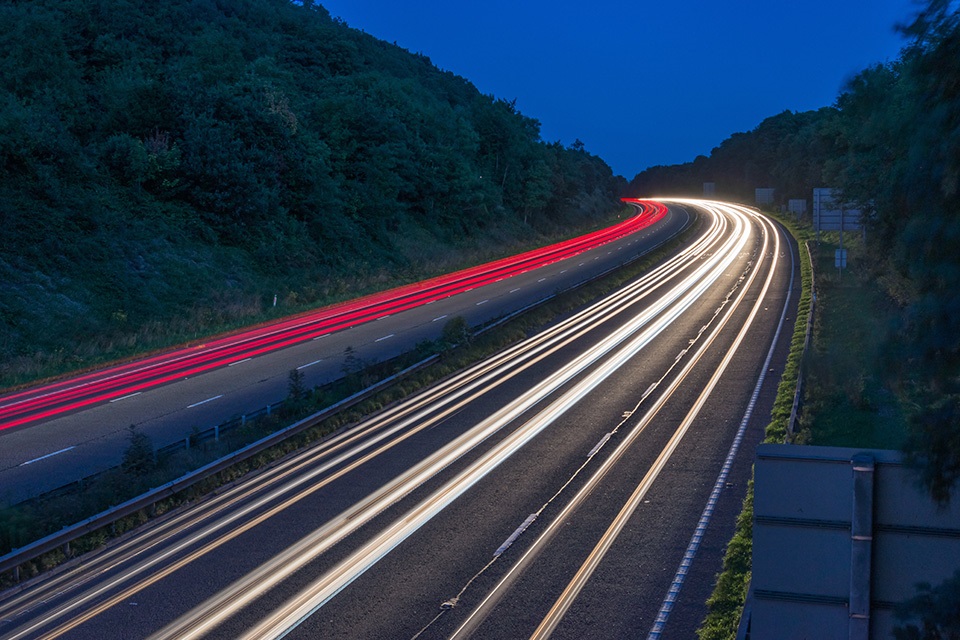
4.1 Our approach to implementing this strategy
Our three year strategic plan sets out the overarching vision for what we want to achieve in those three years. At the start of each financial year we will publish a business plan which will set out how we deliver the strategy through specific milestones and targets.
4.2 Governance
It is important that DVLA is able to deliver the objectives set by this strategy and also provide assurance to Ministers, the Department for Transport, stakeholders and the public that we are doing so.
At the heart of our corporate governance, the DVLA has an Advisory Board led by an independent Non-Executive Chair. The Chief Executive, who is also the DVLA’s Accounting Officer, and the agency’s executive directors serve as members. There are also three independent non-executive directors whose role is to challenge, provide oversight and help shape the DVLA’s strategic direction, each with a relevant skill set gained from senior roles in the private or public sector.
4.3 Financially responsible
Providing value for money for taxpayers and government will always be a core focus for us. The significant and sustainable reductions delivered meant we exceeded our Spending Review commitment by reducing annual like-for-like expenditure in 2019/20 by £108 million (21%), compared to the 2015/16 baseline.
We achieved this particularly through major reductions in IT costs through bringing services in-house and renegotiating other contracts and licences to meet changing business needs. The introduction of new online services and increased take up of existing digital services helps reduce our existing costs.
We regularly review our fees and pass on efficiencies delivered to customers and taxpayers where we can. We have reduced fees for driving licences and tachograph cards, with a greater reduction for online applications. We also removed the fee for retaining a personalised registration number. We will continue to review our costs and fees to encourage further take up of our digital services, reducing our costs and our carbon footprint.
We will maintain stringent financial controls as we deliver our new services and invest in improving existing ones. Alongside collecting £7 billion of vehicle excise duty annually, we will continue to generate revenue and income growth for the government through the sale and transfer of personalised registration numbers.
4.4 Our people
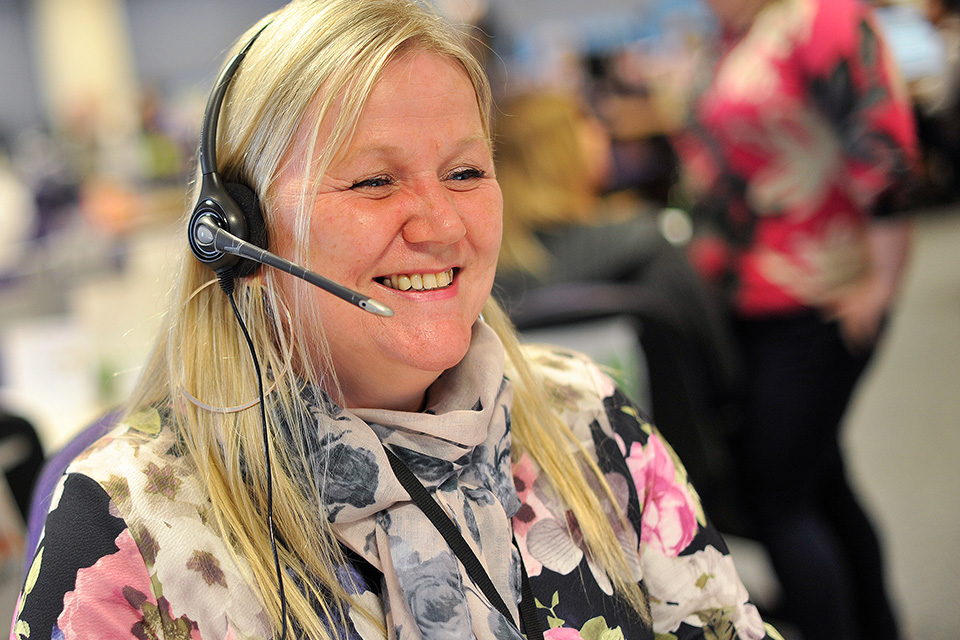
While we will keep tight controls on our workforce numbers, we remain prepared to see new jobs created where externally funded, cross-government opportunities arise. We will invest in new technology, including robotic process automation, to automate some of the more routine tasks.
This will free up staff time to carry out more complex and customer focused tasks. We will use our strategic workforce plan to ensure we can identify the roles and skills we need for the future. This will enable us to have a flexible and adaptable workforce which can meet the changing needs of our business and of our staff.
4.5 Cross-government working
Our priority will remain our core functions of keeping and maintaining accurate registers of drivers and vehicles and collecting £7 billion of Vehicle Excise Duty annually. However, we also provide services to other government departments, including producing biometric residency cards for the Home Office, print and mail services on behalf of GDS Notify, and running services on behalf of the Office for Low Emission Vehicles.
We also offer commercial expertise through providing managed services, including in IT procurement, for the Department for Transport. This allows us to provide savings and efficiencies for other government departments while maximising our own capacity and capability. We will continue to be open to opportunities in this area where capacity allows as our business changes.
